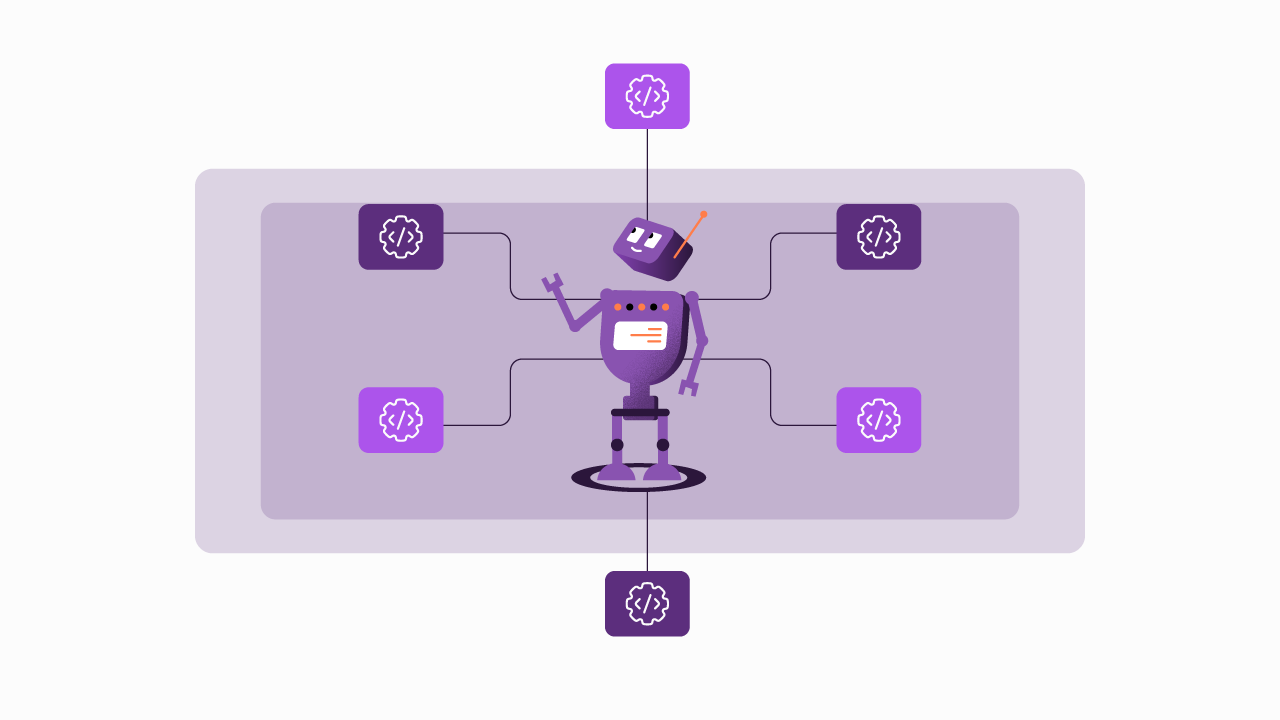AI Agents, API Governance, and the Cost of Data
In 2025, one truth is becoming undeniable: financial institutions are standing on a data battleground. Between JPMorgan’s move to charge fintechs for consumer banking data and the rise of AI agents accelerating API consumption, the urgency for stronger API governance and AI oversight has never been higher.
As AI usage explodes across every layer of digital architecture, banks, credit unions, and fintechs must reconcile two simultaneous transformations: data democratization and AI automation. At Sensedia, we believe these trends converge on one critical priority: Smart API Governance.
Implementing this platform is a rising trend, and in this article, we outline five essential benefits that iPaaS can bring to your integration strategy.
JPMorgan's Data Move: A Signal to the Industry
On July 14th, PYMNTS reported that JPMorgan is preparing to charge fintechs for access to consumer banking data (1). While details remain private, the implications are clear. As data providers push for tighter controls around data, they are asserting ownership, security, and, most importantly, creating a monetization layer on top of APIs that power countless fintech experiences.
What does this mean for the rest of the financial industry?
It signals that:
- Data is a product, not a passive resource.
- API access must be governed, secured, and priced strategically.
- Those without governance will bleed costs, and lose control.
But JPMorgan’s move isn’t only about paywalls. It’s about preparing for a new class of consumers… not people, but machines.
Enter AI Agents: The Silent Consumers
In Nordic APIs’ same day digest, “How AI Agents Are Changing API Rate Limits”, (2) we see a glimpse of what’s next: AI agents using APIs autonomously. These agents, whether embedded in customer-facing applications or back-office operations, consume APIs constantly and at scale. Unlike human developers who write one-off queries, AI agents ping APIs repeatedly, adaptively, and invisibly.
That breaks two traditional assumptions of API usage:
- Predictability – AI agents can generate unpredictable load spikes.
- Identity – It’s harder to distinguish “who” or “what” is making the request.
For example, a generative AI-based personal finance assistant might call transaction history APIs 50x more than a mobile app user ever would. Multiply that across hundreds of thousands of users, and you’ve got a data surge that no rate limit strategy built for human traffic will survive, and that translates to costs.
Why AI Governance Must Start with API Governance
Organizations are being hit by a new wave of API traffic, driven by AI agents.
According to Postman’s 2024 State of the API report (3), AI-driven API traffic increased by 73% between June 2023 and June 2024, reflecting a rapid shift toward machine-initiated requests as AI becomes embedded across enterprise workflows.
This trend is accelerating rapidly. According to a Cloudera report on the "Future of Enterprise AI Agents" (4) cited by Janet Wagner from Nordic APIs, 96% (5) of IT leaders plan to expand their AI agent usage in the coming year. This expansion will drive API traffic even higher as these agents automate interactions that humans previously handled manually.
1. API Observability (See what AI Agents Are Actually Doing)
AI agents operate differently than humans. They generate sudden traffic spikes, make redundant calls, and often hide their identity behind orchestration layers. This behavior breaks traditional monitoring, creating blind spots around:
- Shadow AI usage through partner systems
- Inefficient agent behaviors that waste resources
- Consent violations where agents access more data than intended
MCP eliminates these blind spots by tagging every API call with model-level context; which model, what version, whose session, and why. This gives you granular visibility into not just what's being consumed, but the full context behind each request.
2. Govern APIs Across Your Entire AI Ecosystem
Enterprises now operate as complex ecosystems spanning different partners, embedded technology providers, and internal / external tools. This complexity, coupled with decentralized and distributed tooling across multiple gateways, makes traditional governance impossible.
Sensedia's Smart API Governance enables:
- Local policy enforcement for consent, usage limits, and security
- Central visibility across all gateways and regions
- Scalable control in dynamic, multi-agent environments
This is crucial when AI agents operate across organizational boundaries, for example, when accessing external APIs to retrieve protected data for customer interactions. Federated governance ensures these cross-boundary data flows follow contextual rules specific to each partnership, not rigid static policies.
3. API Rate Limiting and Monetization Built for AI
AI agents are relentless. A well-tuned AI assistant can generate hundreds of API calls per second. Static rate limits designed for human usage create an impossible choice: either throttle legitimate innovation or risk system crashes. In the age of agentic API consumption, adaptive governance isn't optional, it's mandatory.
- Adaptive rate limiting: that adjusts based on behavior, model type, and trust scores.
- Data tiering models: pricing based on volume, latency requirements, and use case.
By leveraging federated governance with multi-gateway support, institutions can manage this complexity at scale and build a secure path to AI innovation.
Enable AI with Control, Not Barriers
Effective AI governance isn't about blocking AI, it's about enabling it safely with the right guardrails to protect your costs and your data.
Smart API governance allows you to let innovation flourish while most importantly, giving you complete visibility into what's happening across your entire ecosystem, even when APIs are being consumed by agents rather than humans.
- Let innovation flourish while maintaining compliance standards
- Enable complex partnerships while preventing critical failures
- Open up new, secure, API monetization revenue streams
The Bottom Line
If your governance model only accounts for human API traffic, it is already obsolete. In a world where AI agents are quickly becoming your primary API consumers, you need infrastructure built for this reality.
Sensedia's Smart API governance with native AI and MCP support gives enterprises the observability, control, and flexibility to govern AI at scale. With centralized policy enforcement, you can give development teams the tools they need without losing control. Our approach combines strong central governance with local agility. This allows your teams to detect and respond to anomalies early, reduce risk, and generate real business value through intelligent API access management.
Ready to take control of your AI and API governance? Connect with our team and see what Sensedia can do for you.
https://www.sensedia.com/contact-us
Begin your API journey with Sensedia
Hop on our kombi bus and let us guide you on an exciting journey to unleash the full power of APIs and modern integrations.
Embrace an architecture that is agile, scalable, and integrated
Accelerate the delivery of your digital initiatives through less complex and more efficient APIs, microservices, and Integrations that drive your business forward.





.svg)




.png)

